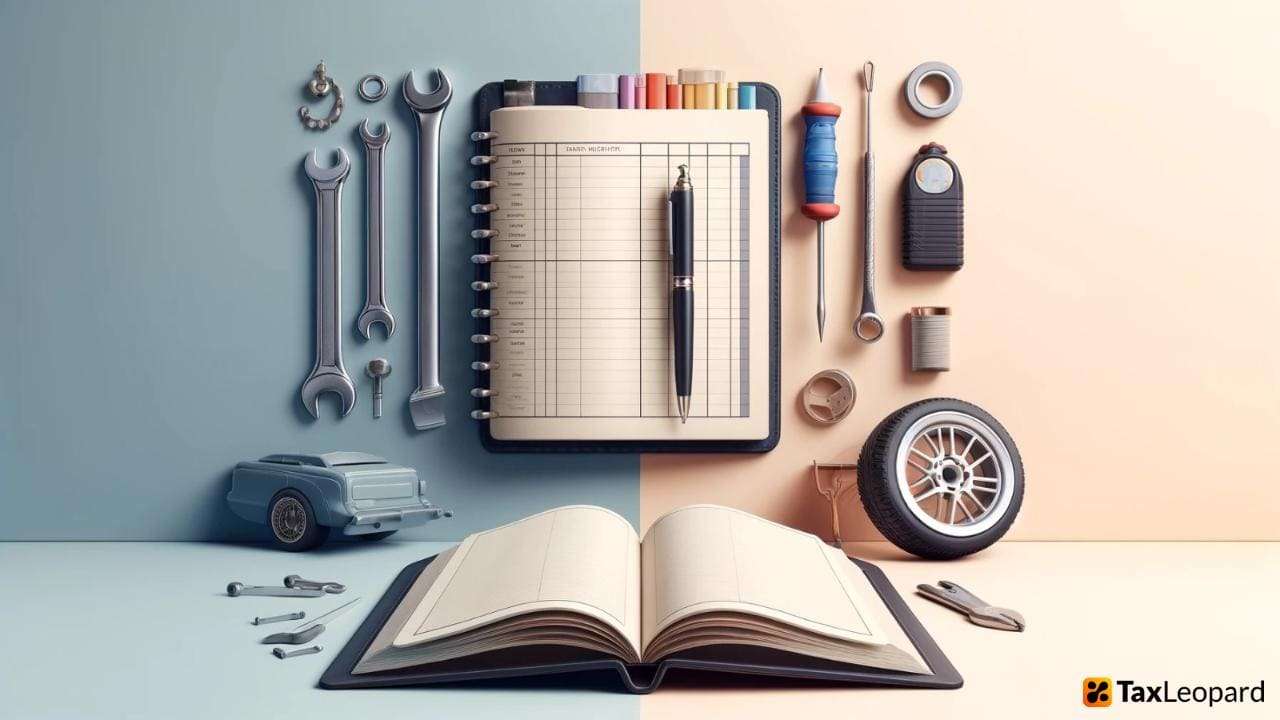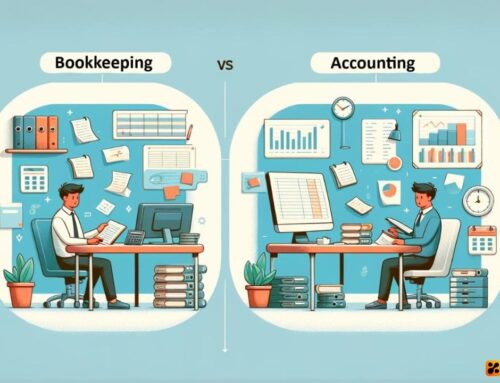Ever wondered why your mechanic insists on specific types of car services? This common dilemma affects numerous car owners, especially when trying to comply with warranty requirements while managing maintenance costs. Understanding logbook vs basic services differences not only helps maintain your car’s warranty but also ensures optimal vehicle performance and safety. This article gets into these distinctions, offering a complete guide on when and why each service type is necessary.
What is a Logbook Service?
A logbook service is a comprehensive maintenance check that aligns with your car’s manufacturer specifications. It ensures your vehicle operates optimally and maintains its warranty. During this service, mechanics perform detailed inspections and replacements as outlined in your vehicle’s service manual, which is tailored to the specific make and model of your car. This service is crucial for keeping your car running smoothly and may vary depending on your vehicle’s age and mileage.
Key Components:
- Engine oil and oil filter replacement to ensure the engine runs efficiently
- Checking and replacing spark plugs if needed, which helps in maintaining engine performance
- Inspection and service of brakes to guarantee safety and performance
- Tyre checks for wear and alignment to promote better fuel efficiency and safety
- Examination of essential fluids, including brake fluid, transmission fluid, and coolant, to prevent mechanical failures
- Battery performance assessment to avoid starting issues
- Review of the suspension system to ensure a smooth ride
- Air filter replacement to improve air quality and engine efficiency
- Checking lights, windshield wipers, and other electrical components to ensure full functionality
What is a Basic Service?
A basic service generally includes routine maintenance tasks designed to keep your car running smoothly. This service level focuses on the essentials to ensure your vehicle performs well daily. Mechanics check and replace engine oil and oil filters, which are critical for maintaining engine health. They also perform checks on key components like brakes, tyres, and spark plugs to ensure everything is functioning properly. Basic services cater to the ongoing needs of your car, adhering to the make and model’s specific requirements.
Typical Procedures:
During a basic service, the following tasks are commonly performed:
- Oil Change: Replace old engine oil with new, high-quality oil to reduce engine wear and improve efficiency.
- Oil Filter Replacement: Swap out the oil filter to remove impurities that could clog the engine.
- Tyre Inspection and Rotation: Check tyre pressure and tread depth, and rotate tyres to promote even wear and extend their life.
- Brake Check: Inspect brake pads, discs, and fluids to ensure optimal braking performance and safety.
- Spark Plug Inspection: Examine spark plugs for signs of wear or damage, replacing them if necessary to maintain engine performance and fuel efficiency.
- Safety Checks: Review all lights, windshield wipers, and horns to ensure they meet safety standards.
Each task is executed with precision by a skilled mechanic, who also provides insights on any potential issues that may require a more thorough look during future services. These procedures are essential for preventing major issues and helping your car run reliably for years to come.
Logbook Service vs Basic Service: 5 Major Differences
Here are the 5 major logbook service vs basic service differences:
1. Scope of Service:
Logbook Service follows the car manufacturer’s detailed guidelines, ensuring all specified parts and systems are checked and serviced. Basic Service typically includes an oil change, filter replacement, and basic inspections to keep the car running smoothly.
2. Warranty Implications:
Logbook Service is essential for maintaining your car’s warranty; uses manufacturer-recommended parts and lubricants. Basic Service may not fully comply with manufacturers’ specifications, which can potentially affect warranty coverage.
3. Frequency and Timing:
Logbook Service is scheduled according to specific time or kilometre intervals stated by the car’s manufacturer, such as every 12 months or 15,000 kilometres, whichever comes first. Basic Service is generally more flexible, recommended every six months or as needed to ensure the vehicle remains in good working order.
4. Comprehensive Check:
Logbook Service is a comprehensive approach that includes checks and replacements not covered in basic services, such as brake fluid and spark plugs. Basic Service focuses on essential maintenance like oil and filter changes, with fewer comprehensive checks.
5. Long-Term Vehicle Health:
Logbook Service helps keep your vehicle running efficiently and smoothly over its lifetime by following the manufacturer’s complete maintenance schedule. Basic Service aims to handle immediate maintenance needs, which may not comprehensively address all aspects of vehicle longevity and efficiency.
When and Why You Need a Logbook Service
Timing and Regulations:
Manufacturers prescribe specific schedules for logbook services to ensure optimal vehicle performance. Typically, these services are required every 12 months or after a certain number of kilometres—whichever comes first. This regimen aligns with the manufacturer’s guidelines, tailored to the make and model of your car, helping maintain its efficiency and reliability. Following these time or kilometre intervals is crucial to keeping your vehicle running smoothly and according to the manufacturer’s specifications.
Advantages Of Basic Service
- Warranty Maintenance: Logbook servicing is designed to comply fully with the manufacturer’s specifications.
- Comprehensive Maintenance: Unlike basic services, which typically involve only engine oil and filter changes, logbook services are more thorough.
- Customized to Your Car: Each service is tailored according to your car’s specific needs, following the manufacturer’s guidelines.
- Resale Value: Regular logbook servicing can enhance the resale value of your car. A complete service history following the car’s manufacturer guidelines appeals to potential buyers and provides proof that the car has been well-maintained.
- Early Problem Detection: Regular checks can detect and address issues before they develop into serious problems, potentially saving on expensive repairs that a basic service might miss.
When a Basic Service is Sufficient
A basic service might be adequate when:
- Your vehicle is relatively new and mainly used for light driving such as short, urban commutes.
- There have been no significant performance issues or warning signs from the vehicle.
- You recently had a comprehensive service and only required routine checks and minor upkeep.
- Your car is older, and out of warranty, and you are maintaining it on a strict budget.
- You’re preparing for a sale and need to ensure the vehicle runs smoothly without extensive investment.
Cost Considerations:
Comparing the cost-effectiveness of basic services versus logbook services reveals several insights:
- Basic services are generally less expensive as they cover only essential maintenance such as oil and filter changes, and basic inspections.
- Opting for a basic service can reduce costs if your car is not under warranty or if you are between more comprehensive logbook services.
- Regular basic services can help keep your vehicle running smoothly while spreading out the cost of more expensive logbook services.
-
However, skipping logbook services to save money can lead to higher costs in the long run due to undetected issues that may worsen.
-
Always weigh the immediate cost against potential long-term savings when choosing your service type.
Choosing the Right Service for Your Car
Selecting the appropriate service for your car involves considering various aspects to ensure optimal performance and longevity. Here are some critical factors to weigh:
- Age of Your Car
- Usage Patterns
- Manufacturer’s Recommendations
- Type of Service Required
Understanding these factors and how they relate to your vehicle will help you choose the right service type. Regular servicing not only extends the life of your car but also ensures it runs efficiently and safely. If still unsure about the type of car service you need, consider consulting with a professional mechanic who can provide guidance based on your specific make and model.
Conclusion
As we’ve explored, choosing the right service for your vehicle involves more than just meeting immediate needs; it’s about long-term care and compliance with warranty stipulations. Regular logbook services are crucial for maintaining warranty protection and enhancing vehicle resale value, while basic services keep your vehicle running smoothly between these more detailed checks. Have you evaluated how your current service routine aligns with your vehicle’s manufacturer guidelines? What changes might you consider to optimize vehicle care in the context of ‘Logbook Service vs Basic Service’?
FAQs
1. Is a basic service cheaper than a logbook service?
Yes, basic services are generally cheaper as they cover only essential maintenance without the extensive checks and adherence to strict manufacturer guidelines required by logbook services.
2. What happens if I skip a logbook service?
Skipping a logbook service can void your warranty and lead to higher repair costs in the future as potential issues may go unnoticed.
3. Can a basic service be part of a logbook service?
Yes, a basic service can be included within a logbook service schedule, especially if the car is older or has higher mileage, to keep the vehicle running smoothly.
4. Does a logbook service improve resale value?
Yes, maintaining a complete logbook service history can significantly improve your vehicle’s resale value as it shows potential buyers that the car has been well maintained.
5. Should I choose a logbook service even after the warranty period?
Continuing with logbook services after the warranty period can be beneficial for maintaining vehicle performance and longevity, although it’s not mandatory.





